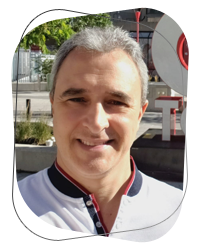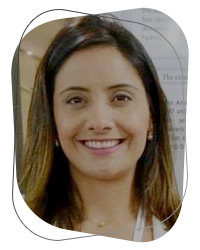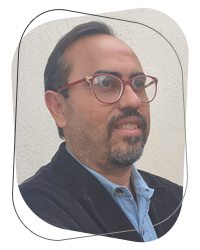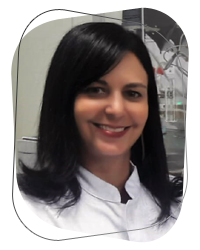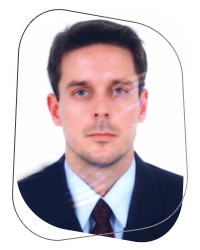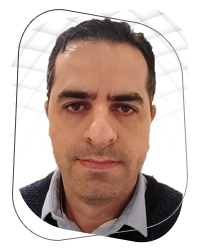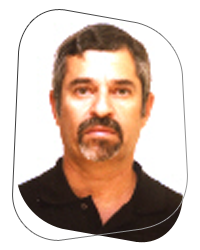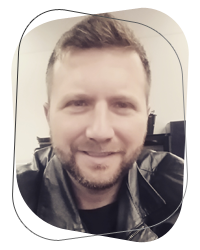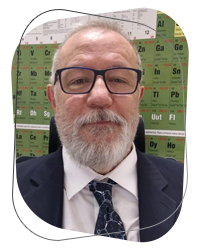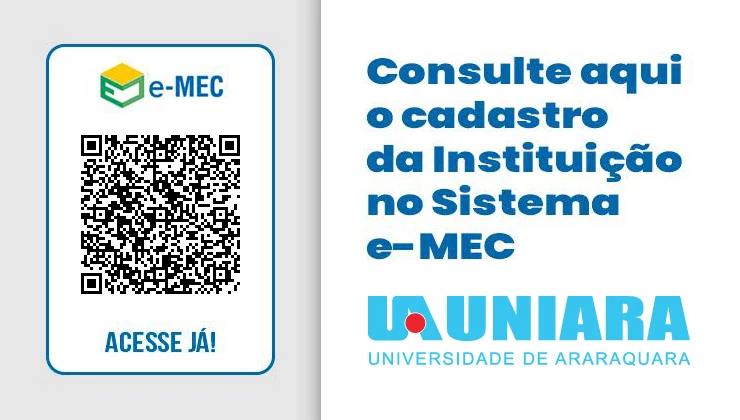Insertion and Regional Impact of the Program
Uniara`s Graduate Program in Biotechnology in Regenerative Medicine and Medicinal Chemistry (PPGB-MRQM/Uniara) aims to strengthen scientific and technological aspects at the interface between Biotechnology and the areas of Medicine and Health, with a high potential for generating knowledge, information, products, and techniques that can improve the population`s quality of life, regardless of the levels of political-administrative circumscription (regional, state or federal).
Araraquara is in the interior of the state of São Paulo, a recognized and rich center for training professionals in the areas of Biological Sciences and Health Sciences. It has numerous and renowned public institutions (UNESP, USP, Unicamp, UNIFESP and UFSCar) and private (Uniara, UNAERP, Barão de Mauá, UNIMEP, PUC, among others) that offer undergraduate courses in areas such as Biology, Biomedicine, Nursing, Biomedical Engineering, Pharmacy, Medical Physics, Physiotherapy, Medicine, Veterinary Medicine, Nutrition, Dentistry, Psychology and Occupational Therapy. In addition to training professionals with skills and abilities for clinical practice and technical-scientific support, these HEIs, especially public ones, develop, through activities at the undergraduate and graduate levels, high-level scientific research that contribute to the technical-scientific advancement of each of these professions.
The PPGB-MRQM was conceived considering the perception of the need to expand research centers specialized in technical-scientific development in the areas of Regenerative Medicine and Medicinal Chemistry. As an additional benefit, the potential for establishing research cooperation with advanced centers in related areas located in Araraquara and other cities in the State of São Paulo was considered.
Regenerative Medicine represents an emerging and extremely promising area of research, with strong indications of being able to revolutionize the strategies and results of the treatment of countless pathologies, in the most diverse medical specialties. The development of biotechnological methods and products resulting from research at the PPGB-MRQM may contribute decisively to scientific advances and, in the future, to therapeutic approaches that expand the therapeutic arsenal. The PPGB-MRQM has cell culture, biomaterials, molecular biology, and vivarium laboratories that already enable the development of experimental research (in vitro and in vivo) in the areas of cell therapy, therapy by autologous and recombinant biomolecules (factors of growth and cell signaling molecules) and construction of bioactive and cellularized supports for tissue repair of the musculoskeletal system. It is noteworthy that these approaches are still very little disseminated within the undergraduate courses of health science courses throughout the country. Also, in Regenerative Medicine, research in the area of bacterial cellulose membranes, used as drug delivery devices or temporary skin substitutes, and biostimulating electrophysical resources, such as laser and LED phototherapy, have great potential for realization of controlled clinical trials. We believe that we will soon be able to effectively contribute to the advancement of therapeutic modalities aimed at treating various pathologies and improving the population`s quality of life.
Medicinal chemistry also stands out as an emerging and extremely promising research area, with a recognized central role in the process of drug planning and development, having as a relevant characteristic its inter and multidisciplinary character, covering several specialties, such as Organic Chemistry, Biochemistry, Pharmacology, Bioinformatics, Cellular and Molecular and Structural Biology, among others. According to the International Union of Pure and Applied Chemistry (IUPAC - International Union of Pure and Applied Chemistry), Medicinal Chemistry is an area of Chemistry that involves the planning, identification, synthesis, interpretation of the mechanism of molecular action and the biological application of biologically active compounds. In addition to the discovery of bioactive molecules, Medicinal Chemistry also incorporates studies of metabolism and the relationships between chemical structure and activity. In this way, the establishment of fundamental interfaces between chemical, biological, pharmaceutical, medical, physical and computational sciences becomes clear.
Regarding research in Medicinal Chemistry and Regenerative Medicine developed at the PPGB-MRQM, research partnerships have already been established with institutions at regional and state level, enabling several projects involving undergraduate and graduate students from both Uniara and partner institutions.
The existence of a medical course at Uniara, as well as courses at nearby public institutions (UFSCar in São Carlos, USP in Ribeirão Preto, FAMEMA in Marília, UNESP in Botucatu, FAMERP in Rio Preto, Unicamp in Campinas, UNIFESP and USP in São Paulo Paulo), contributes favorably to the possibility of establishing inter-institutional scientific partnerships, expanding the potential of scientific, technical and labor demand for the development of research by the PPGB-MRQM, and the adoption of strategies that allow the wide dissemination of the regenerative medicine in basic training courses in medicine and health throughout the state. An example of this potential was a project developed between the Uniara Medicine Course, the Uniara Tridimensional Technologies Nucleus (NUT-3D/Uniara) linked to the PPGB-MRQM and the Renato Archer Campinas Information Technology Center (Research Center linked to the MCTI). This project allowed the study, planning and execution of a printed biomodel, using three-dimensional technologies, for the preoperative surgical planning of a patient who would undergo corrective orthopedic knee surgery after a car accident. The objective of this nucleus (NUT-3D/Uniara) is to expand the use of three-dimensional technologies in medicine, contributing to technological advances, with updated professional training for physicians and with the rapid availability of this technology to patients in the public health network.
Entrepreneurial Actions
Innovation and Development Center for Biotechnological Products and university/company interaction.
Technological development is not the result of individual actions by companies, especially when we talk about companies in the biotechnology area. The support and partnership of research and teaching institutions are strategic for these companies to achieve competitiveness and competence. The region of Araraquara and São Carlos has shown great potential to hold technology-based companies and it is in this niche that the Center for Innovation and Development of Biotechnological Products - NIDPBio/Uniara hopes to provide a greater contribution, providing opportunities for training human resources in the area innovation management in addition to actions that favor entrepreneurship.
The Nucleus` work focus is on Biotechnology area, particularly in Medicine and human health. We hope to create opportunities for professionals from different areas of activity, whether in academic or industrial research, or in the development of new products. Universities located in the region, which are major producers of knowledge, in addition to promoting the production of patents and scientific articles, have also sought to approach the private sector or public institutes. The Center should act as a link between these actors, stimulating and creating new opportunities for researchers and entrepreneurs.
NIDPBio/Uniara is headquartered at the Dahma Eco Technological Park, at the Innovation Center - INOVA, in the city of São Carlos. The center`s mission is to support the development of innovative biotechnological product projects, promote the articulation of entrepreneurial partnerships, promote the transfer of technology, with a view to enhancing technical, scientific, and technological production, in order to improve training and competence in the area of Biotechnology. The nucleus plays an important role in the PPGB-MRQM strategy of bringing biotechnology companies closer to research projects that provide the establishment of an efficient and consolidated model of university/company interaction, generating multiple and mutual benefits for the postgraduate area in Biotechnology, for companies in this sector and for the country, considering its interest in obtaining a robust, competitive, and profitable productive sector in that area.



